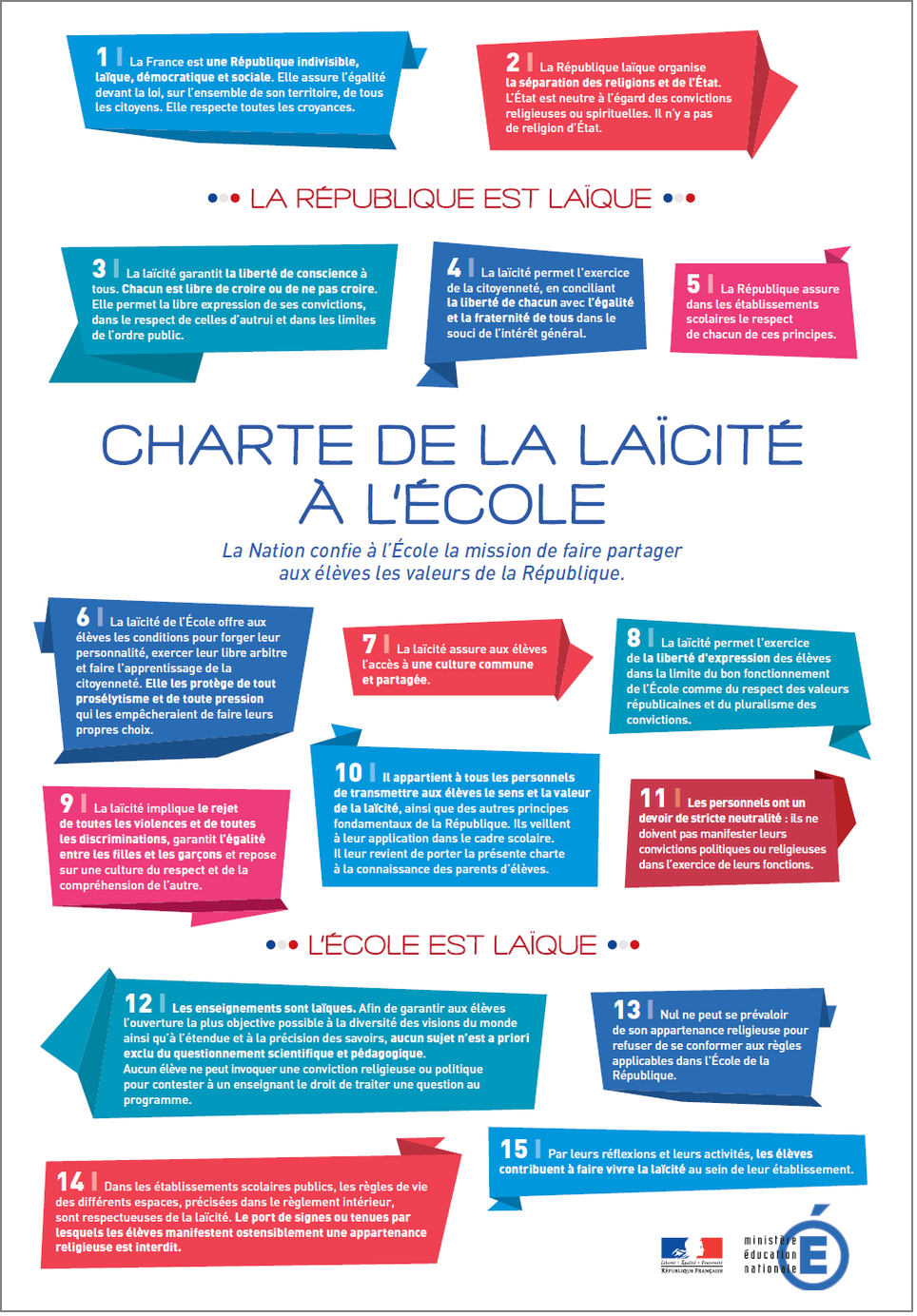All pupils in French state schools will be reminded this week that they are not allowed to wear items of religious clothing such as headscarves or crucifixes, nor object to the school curriculum on religious grounds, in a 15-point written statement to be displayed on school walls.
Some critics have denounced the charte de laicité or “secularism charter” as a thinly veiled attack on Islam. Others complain that it is an inadequate response to the growing influence of intolerant strains of Islam in the multiracial suburbs of French cities.
The Education Minister, Vincent Peillon, says the charter, which contains no new rules, is simply a restatement of the principle of “secularity”, or separation between church and state, established in France 108 years ago.
The charter tells pupils they cannot object to parts of the state curriculum – such as the teaching of evolution or the Holocaust – on religious or political grounds. It reminds teachers that they are not allowed to bring their own religious or political beliefs into the classroom.
Another article recalls that since 2004 it has been illegal to wear religious clothes or symbols in state schools. Several articles make the case for “secularity” as a protection rather than a threat – a guarantee of the rights and equality of all religions and not an attack on the principle of faith itself.
Article 4 says: “Secularism guarantees freedom of conscience for all. Everyone is free to believe or not to believe.”
Most moderate Islamic groups have accepted the charter. Others see a hidden agenda. Abdallah Zekri, president of the Observatory on Islamophobia, said: “This charter was supposedly made to combat sectarianism. But honestly, I feel targeted because now when anyone talks about ‘sectarianism’, they’re really talking about Muslims.”

